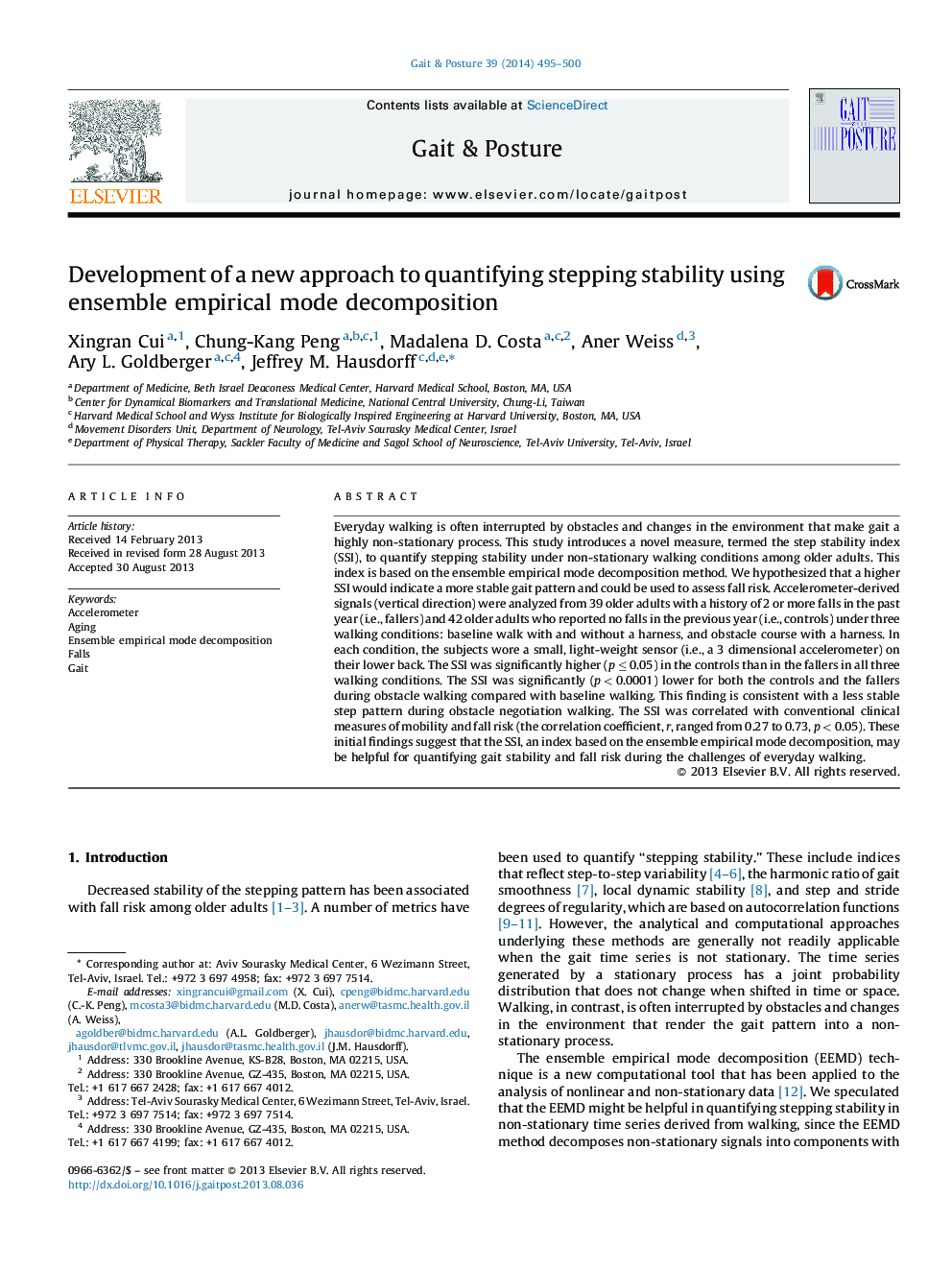| کد مقاله | کد نشریه | سال انتشار | مقاله انگلیسی | نسخه تمام متن |
|---|---|---|---|---|
| 6207105 | 1265653 | 2014 | 6 صفحه PDF | دانلود رایگان |
- We propose a step stability index (SSI) for quantifying non-stationary gait.
- The SSI was higher in controls than in fallers in 3 walking conditions (p â¤Â 0.05).
- The SSI was lower during obstacle walking (p < 0.001) than in normal walking.
- The SSI was correlated with conventional measures of mobility and fall risk.
- Initial findings suggest that the SSI can assess walking in a complex environment.
Everyday walking is often interrupted by obstacles and changes in the environment that make gait a highly non-stationary process. This study introduces a novel measure, termed the step stability index (SSI), to quantify stepping stability under non-stationary walking conditions among older adults. This index is based on the ensemble empirical mode decomposition method. We hypothesized that a higher SSI would indicate a more stable gait pattern and could be used to assess fall risk. Accelerometer-derived signals (vertical direction) were analyzed from 39 older adults with a history of 2 or more falls in the past year (i.e., fallers) and 42 older adults who reported no falls in the previous year (i.e., controls) under three walking conditions: baseline walk with and without a harness, and obstacle course with a harness. In each condition, the subjects wore a small, light-weight sensor (i.e., a 3 dimensional accelerometer) on their lower back. The SSI was significantly higher (p â¤Â 0.05) in the controls than in the fallers in all three walking conditions. The SSI was significantly (p < 0.0001) lower for both the controls and the fallers during obstacle walking compared with baseline walking. This finding is consistent with a less stable step pattern during obstacle negotiation walking. The SSI was correlated with conventional clinical measures of mobility and fall risk (the correlation coefficient, r, ranged from 0.27 to 0.73, p < 0.05). These initial findings suggest that the SSI, an index based on the ensemble empirical mode decomposition, may be helpful for quantifying gait stability and fall risk during the challenges of everyday walking.
Journal: Gait & Posture - Volume 39, Issue 1, January 2014, Pages 495-500
